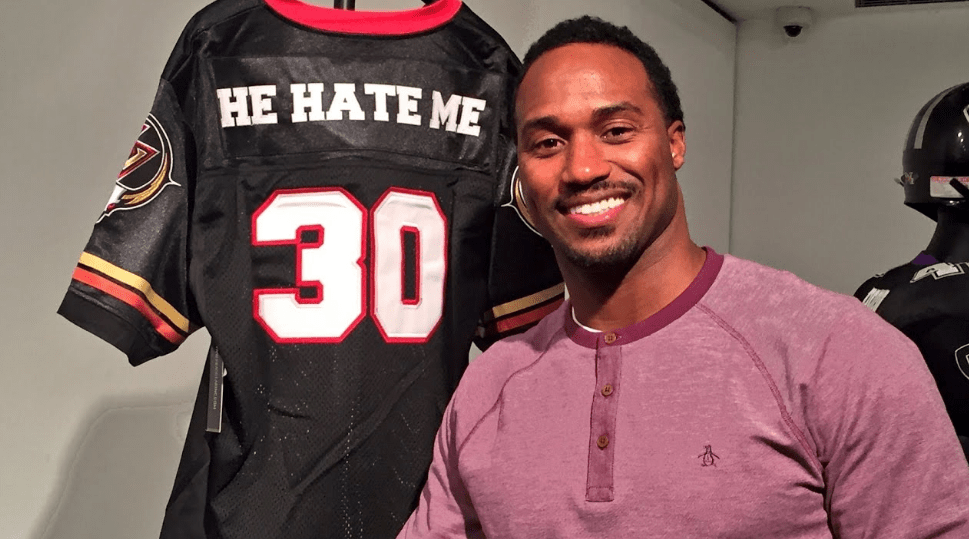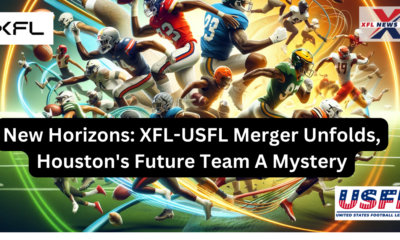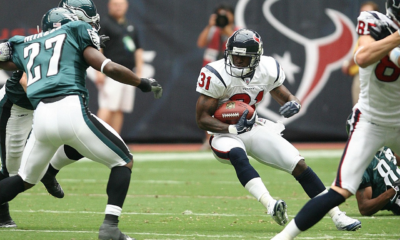
Despite The XFL only having a single season ever since their debut, there have been several notable players that came out of the league and that have left their mark and legacies that up to this day they are still being talked about. As soon as it was announced that The XFL will be returning in early 2020, people have been wondering and thinking about what part of the original XFL will be coming back as well especially their players. Several fans have been making their presence felt in social media and all over the internet that they want to see Rod “He Hate Me” Smart come back for the new XFL. Rod Smart played college football for Western Kentucky. He was originally signed by the San Diego Chargers of the National Football League (NFL) as an undrafted free agent after the 2000 NFL Draft.
Rod Smart first played professional football when he was with the Las Vegas Outlaws during the original XFL days. Rod joined the Las Vegas Outlaws in the Spring of 2001 and that is where he got the nickname “He Hate Me” which he wore on the back of his jersey. He finished the season by ranking second in the league in rushing with 555 yards. He also finished third in average rushing yards (3.8 yards per carry), and scored three touchdowns over the course of the one and only XFL season. He led the Outlaws in rushing, and was second on the team in receiving with 27 catches for 245 yards.
Of the over 300 players to don an XFL uniform during its lone 2001 season, league executives noted that while most saw the league solely as a way to further their own careers in hopes of returning to the NFL, Smart fully embraced the league’s approach to football and sports entertainment. In the documentary named This Was the XFL, Smart stated that he had the league survived for a second season and that he was certain to have returned and had no intention of trying out for an NFL or CFL position before the XFL collapsed. “He Hate Me” was a phrase Smart chose to place on the back of his Las Vegas Outlaws football jersey. Even though most sports organizations allow only a surname or first initial and surname to be placed on the back of a jersey, XFL rules permitted players’ jerseys to be stitched with whatever words they wanted. The Outlaws happened to be playing in the league’s first nationally televised game (the one that would, ultimately, be the most widely watched game, as the league’s viewership plummeted after that point), and the league’s choice of camera angles more akin to video games meant that Smart’s jersey was prominently featured on the telecasts. His jersey was the XFL’s best seller.
Smart later explained that the origin of the phrase “He Hate Me” came from his belief that basically, his opponent is going to hate him. After I win, he’s gonna hate me. It is what it is. It’s a saying I was saying when I’d feel something wasn’t going my way. For example, (when) I was on the squad in Vegas and coach was putting other guys in, (if) I felt I’m better than them, you know, hey, ‘he hate me.’ See what I’m saying? Give me a chance. That’s all I ask. It came from the heart. Within. The way I felt. I feel as if everyone hates me, from my mom to my dad and even my brothers and sisters everyone “Hates Me”. My buddy Greg Kates always used to use it, so I took it from him.
Smart then said that he originally planned to use a different nickname on the back of his jersey every week of the season but abandoned that plan when “He Hate Me” became a national sensation. He and his agent also credit the nickname with getting NFL scouts to notice him after the XFL collapsed. When Smart and the Outlaws played divisional rival the Los Angeles Xtreme, two Xtreme players put “I Hate He” and “I Hate He Too” on the back of their jerseys to express their disdain for Smart. In a later game between those two teams, those two players changed their nicknames to “Still Hate He” and “Still Hate He Too”. Rod Smart’s future Carolina Panthers teammate Jake Delhomme even named one of his horses “She Hate Me.”
After The XFL folded, Smart signed with the Edmonton Eskimos of the Canadian Football League (CFL). He played one pre-season game for Edmonton before being released in August 2001. The Philadelphia Eagles of the NFL eventually signed Smart to their practice roster on October 2, 2001. He was promoted to the active roster on November 19, 2001, appeared in six regular season games, mainly on special teams, and rushed for six yards on two carries. The Eagles waived Smart at the end of their 2001 season.
In September 2002, Smart was claimed off waivers by the Carolina Panthers. He played in all 16 regular season games, and led the Panthers with 24 special teams tackles. He produced at least one special teams tackle in 14 games en route to recording the second-highest number of special team tackles in a season in team history.
In 2003, Smart played in all 16 Panthers’ games for the second consecutive season. For the first time in a Panthers’ uniform, he was utilized as a kick returner, in addition to his special teams coverage duties. He averaged 23.1 yards on 41 kickoff returns for 947 yards, including a 100-yard touchdown against the New Orleans Saints on October 5, 2003. He finished the Panthers’ 2003 season ranked second with 14 special teams tackles and recorded his first career blocked punt. He also rushed for 49 yards on 20 carries and caught three passes for 11 yards on offense. He contributed to a Panthers’ special teams coverage unit that ranked fifth in the NFL in opponents’ kickoff return average. In Super Bowl XXXVIII, Smart returned four punts for 74 yards.
Smart’s 2004 season was cut short due to injuries. He played in the first three games of the season for the Panthers, but was inactive for the next four before being placed on injured reserve with an injured left knee on November 3, 2004. Despite his limited action in 2004, he averaged 21.1 yards on eight kickoff returns for 169 yards, with the longest return being 33 yards. He also rushed four yards on three carries, and caught one pass for five yards, on offense. In 2005, Smart returned to the Panthers healthy, played in 12 games, and led the Panthers with 29 kickoff returns for 615 yards (for a 21.2 yard average). He also recorded nine tackles and one fumble recovery for the Panthers’ kick coverage unit. After four seasons, Smart was released by the Panthers on March 1, 2006.
On May 4, 2006, Smart signed with the Oakland Raiders as a free agent. Being injured for part of the 2006 pre-season, he failed to make the final 53-man Raiders roster on September 2, 2006. Smart was selected by Team Tennessee during the inaugural draft of the All American Football League on January 26, 2008. However, when the league was postponed for its inaugural season, all players were released from their contracts, leaving him a free agent. After being released by the Oakland Raiders, Smart became a personal trainer, before appearing in Don’t Blame The Lettuce. He currently lives in Charlotte, North Carolina and purportedly works as a high school guidance counselor. He also owns his own business, SmartSize.
He has surely left a huge mark in the world of professional football and when The XFL makes a return in early 2020 it will be interesting to see if Rod “He Hate Me” Smart also makes a return to professional football as he is one of the best players in the world and his contributions are nothing short of amazing and spectacular.
Unleash the Action: Sign up for XFL Insider and Fuel Your Passion for Football!

USFL and XFL Merger: A Deep Dive into the Historic Collaboration
Latest Podcast
-


XFL Podcast
/ 1 year agoXFL-USFL Merger Insights: Houston’s Future, Draft News, Player Movement – Ep. 216
Welcome to Episode 216 of the “XFL Week In Review,” your premier destination for...
By Mark Perry







